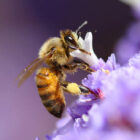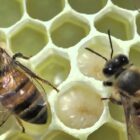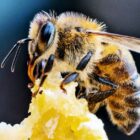The bee is more honored than other animals, not because she labors, but because she labors for others.
-St. John Chrysostom
Living Together
Bees and humans have coexisted for thousands of years. Throughout history, bees have played an important role in human life, providing us with honey, wax, and pollen. But beyond these tangible benefits, bees also play a critical role in our ecosystem, pollinating plants and ensuring the continuation of plant species.
In recent years, there has been growing concern about the decline of bee populations due to habitat loss, pesticides, and disease. As a result, many people have become more aware of the importance of bees and are taking action to help them thrive.
One way that humans and bees are working together is through the practice of beekeeping. Beekeepers provide safe and protected environments for bees to live and produce honey. In exchange, beekeepers are able to harvest the honey produced by the bees.
Our Impact
One of the biggest human impacts on bees is habitat loss. As human populations expand, land is cleared for agriculture, development, and other uses, reducing the amount of natural habitat available to bees. This reduces the availability of flowers and nesting sites for bees, making it more difficult for them to survive and reproduce.

The wings of a bee beat at a rate of around 200 beats per second, allowing them to fly at speeds of up to 15 miles / 24 km per hour.

Some species of bees are solitary and do not live in colonies, instead laying their eggs in tunnels or burrows in the ground or in wood.




